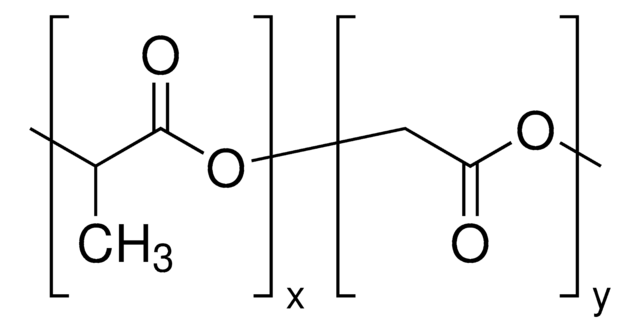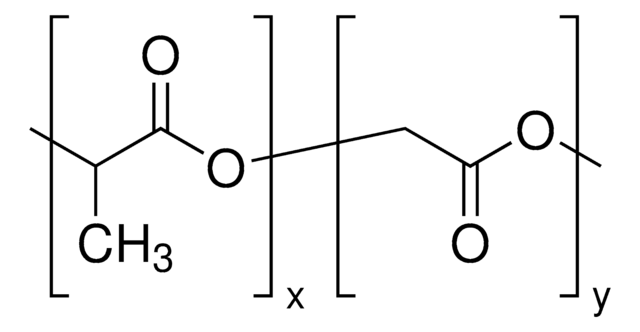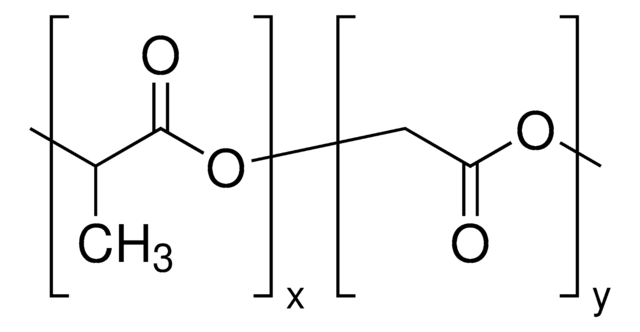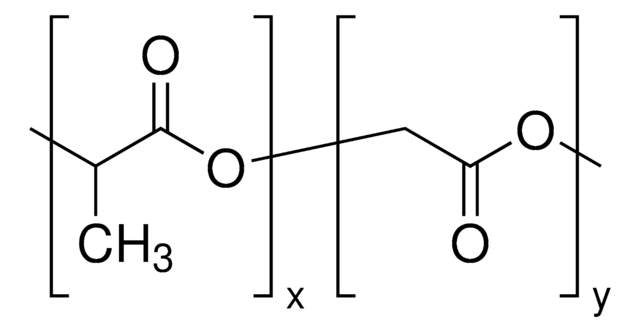P1941
Poly(D,L-lactide-co-glycolide)
lactide:glycolide (75:25), mol wt 66,000-107,000
Synonyme(s) :
LACTEL® B6007-1, PLGA
About This Item
Produits recommandés
Forme
pellets
Niveau de qualité
Ratio alimentaire
lactide:glycolide (75:25)
Poids mol.
66,000-107,000
Température de stockage
−20°C
Chaîne SMILES
OCC(O)=O.CC(O)C(O)=O
Vous recherchez des produits similaires ? Visite Guide de comparaison des produits
Description générale
Application
Caractéristiques et avantages
Forme physique
Informations légales
Code de la classe de stockage
11 - Combustible Solids
Classe de danger pour l'eau (WGK)
WGK 3
Point d'éclair (°F)
Not applicable
Point d'éclair (°C)
Not applicable
Équipement de protection individuelle
Eyeshields, Gloves, type N95 (US)
Certificats d'analyse (COA)
Recherchez un Certificats d'analyse (COA) en saisissant le numéro de lot du produit. Les numéros de lot figurent sur l'étiquette du produit après les mots "Lot" ou "Batch".
Déjà en possession de ce produit ?
Retrouvez la documentation relative aux produits que vous avez récemment achetés dans la Bibliothèque de documents.
Les clients ont également consulté
Articles
Innovations in polymer technology have had a significant impact on the advancement of novel drug delivery systems.
Humankind has utilized protein materials throughout its existence, starting with the use of materials such as wool and silk for warmth and protection from the elements and continuing with the use of recombinant DNA techniques to synthesize proteins with unique and useful properties.
Notre équipe de scientifiques dispose d'une expérience dans tous les secteurs de la recherche, notamment en sciences de la vie, science des matériaux, synthèse chimique, chromatographie, analyse et dans de nombreux autres domaines..
Contacter notre Service technique










